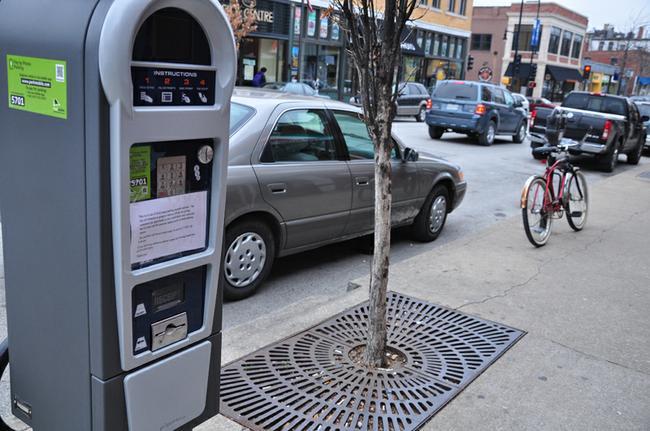
The City of Columbia has decided to launch a 90-day pilot project of a new parking meter system, beginning Feb. 13.
The test includes installing single- and multi-space parking meters on Ninth Street with new payment methods by credit card, debit card and cell phone.
Two multi-space parking meters have already been set up between Broadway and Locust streets, which will be available for use starting Feb. 13.
The single-space parking meters will be placed between Locust and University streets within a couple of weeks, according to a city news release. These systems are similar to the current system, but add more payment options.
Public Works Department spokeswoman Jill Stedem said there have been inquiries from citizens about more parking payment options.
In response to the citizens’ needs, the Parking Task Force is implementing a 90-day test to convenience citizens with the new payment system, Stedem said.
Stedem said the task force wanted to investigate whether the increase in payment options would increase revenue from parking downtown.
In addition to new payment methods, this new system will decrease the walking distance to payment machines.
The multi-space parking meter is a more efficient way to take care of several spaces than using one machine, Stedem said. Single meters have to be set up for every location.
Sophomore Joe Cho said having multi-space parking meters is a great idea because he wouldn’t have to go back and forth to reinsert coins.
He was also in support of new payment methods, saying it would help more people have access to parking.
Freshman Hannah Reese also said the new payment system would be convenient, but said she did not think the multi-space parking meter is worth investing in.
“Well, to me this honestly seems like kind of a waste of money,” she said. “There are already parking meters by every spot so I don’t really see why it is necessary to put in new meters that are for multiple spaces.”
Stedem said nothing has been decided about whether this system will be used in the future. She said the final decision will be made after the test.
“After 90 days, they will look at the result and provide that to City Council and let them decide whether they are going to install either both machines or one of them,” Stedem said. “The decision will be based on whether this policy will affect the city budget and its efficiency.”